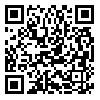1. Ringborg A, Lindgren P, Martinell M, Yin DD, Schon S, Stalhammar J. Prevalence and incidence of type 2 diabetes and its com-plications 1996-2003-estimates from a Swedishpopulation-based study. Diabet Med. 2008; 25: 1178-86. [
DOI:10.1111/j.1464-5491.2008.02541.x] [
PMID]
2. Nouwen A, Nefs G, Caramlau I, et al. Preva-lence of depressionin individuals with impaired glucose metabolism or undiagnosed diabetes: a systematic review and meta-analysis of the eu-ropean depression in diabetes (EDID) research consortium. Diabetes Care. 2011; 34: 752-62. [
DOI:10.2337/dc10-1414] [
PMID] [
PMCID]
3. Kyrios M, Moore SM, Hackworth N, et al. The influence of depression and anxiety on outcomes after an intervention for prediabetes. Med J Aust. 2009; 190: 81-85. [
DOI:10.5694/j.1326-5377.2009.tb02476.x]
4. Naicker K, Johnson JA, Skogen JC, et al.Type 2 diabetes and comorbid symptoms of depression and anxiety: longitudinal associa-tions with mortality risk. Diabetes Care. 2017; 40:352-58. [
DOI:10.2337/dc16-2018] [
PMID]
5. Andreoulakis E, Hyphantis T, Kandylis D, Iacovides A. Depression in diabetes mellitus: a comprehensive review. Hippokratia. 2012; 16: 205-214.
6. Moayedie F, Zare Sh, Nikbakht A. Evaluation of anxiety and depression in pa-tients with diabetes referred to diabetes clinic in Bandar Abbas. J Hormozgan Univ Med Sci. 2014; 18:65-71.
7. Peyrot M, Rubin RR, Kruge DF, Travis LB. Correlates of insulin injection omission. Diabe-tes Care .2010; 33: 240-45. [
DOI:10.2337/dc09-1348] [
PMID] [
PMCID]
8. Mayberry LS, Egede LE, Wagner JA, Os-born CHY. Stress, depression and medication nonadherence in diabetes: test of the exacer-bating and buffering effects of family support. J Behav Med. 2015; 38: 363-71. [
DOI:10.1007/s10865-014-9611-4] [
PMID] [
PMCID]
9. Baek RN, Tanenbaum ML, Gonzalez JS. Diabetes burden and diabetes distress: the buffering effect of social support. Ann Behav Med. 2014; 48: 145-55. [
DOI:10.1007/s12160-013-9585-4] [
PMID] [
PMCID]
10. Wubbolding RE. Reality Therapy. Wash-ington, DC: American Psychological Associa-tion, 2011.
11. Shafie Abadi A, Naseri GH. Theories of counseling and psychotherapy. Tehran: Nashre Daneshghahy, 2011.
12. Palmer Mason C, Duba JD. Using reality therapy in schools :its potential impact on the effectiveness of the ASCA national model. Int J Real Ther. 2009; 29: 5-12.
13. Bhargava R. The use of reality therapy with a depressed deaf adult. Clinical Case Studies. 2013; 12: 388-96. [
DOI:10.1177/1534650113496869]
14. Al-Sawalmeh A, Al-samadi A .The effec-tiveness of group reality therapy in reducing psychological stress and anxiety among pregnant women. J Education Sci. 2012; 8: 365-76.
15. Asmkhany Akbarnezhad H, Etemadi A, Nasirnezhad F .The effectiveness of group re-ality therapy on anxiety in women. J Psychol Study. 2014; 10: 73-87.
16. Pasha Gh, Amini S. The effect of reality therapy on life expectancy and anxiety of mar-tyrs' wives. New Find Psychol. 2009; 3: 37-50.
17. Sadi Pour S. Research Methods in Psychol-ogy and Educational Sciences. Tehran: Nashre duran. 2014.
18. Basker M, Moses PD, Russell S, Swamidhas P, Russell S. The psychometric properties of beck depression inventory for adolescent depression in a primary-care paedi-atric setting in India. Adolesc Psychiatry Ment Health. 2007; 8: 1-8. [
DOI:10.1186/1753-2000-1-8] [
PMID] [
PMCID]
19. Rahimi CH. Application of Beck Depres-sion Inventory - 2 in Iranian students. J Clin Psychol Personal. 2014; 21: 173-89.
20. Beck AT, Epstein N, Brown G, Steer RA. An inventory for measuring clinical anxiety: psychometric properties. J Consult Clin Psy-chol. 1988; 56: 893-97. [
DOI:10.1037/0022-006X.56.6.893]
21. Rafiee M, Seifi A. Reliability and reliability of beck anxiety scale among students. J Thought Behav. 2013; 7: 37-48.
22. Morisky DE, Ang A, Krousel-Wood M, Ward H. Predictive validity of a medication adherence measure for hyperension control. J Clin Hypertension. 2008; 10: 348-354. [
DOI:10.1111/j.1751-7176.2008.07572.x] [
PMID]
23. Ghanei Gheshlagh R, Ebadi A, Wissi Rey-gani AA, Norouzi Tabrizi K, Dalouni A, Mahmudi H. Determining the criterion validity of complian drug regimen scale of morris in type ii diabetic patients. Rehabil Res Nurs. 2015; 1: 24-32.
24. Hays RD. The medical outcomes study (mos) measures of patient adherence. J Behav Med. 1994; 17: 361-7. [
DOI:10.1007/BF01858007] [
PMID]
25. Zahednezhad H, Poursharifi H, Babapour. The relationship between memory error ,the doctor patient relationship health focus of con-trol and compliance with treatment in patients with type 2 diabets. J Yazd Univ Med Sci. 2012; 20:249-58.
26. Massah O, Farmani F, Karimi R, Karami H, Hoseini F, Farhoudian A. Group reality therapy in addicts rehabilitation process to re-duce depression, anxiety and stress. Iran Re-habil J. 2015; 13: 42-88.
27. Vafaa'ei JZ, Sepehri Z, Salehi J. Comparing effectiveness of enrichment and enhancement of life and reality therapy to improve the ther-apeutic index of the drug abusers. Res Clin Psychol Counsel. 2013; 3: 99-118.
28. Movasat R. Comparison of the effective-ness of reality therapy and treatment to the manner of anxiety, depression and self -estem of young people with epilepsy. Mashhad Fer-dosi University. 2013. [dessertation]
29. Toozandehjani H, Soltanzadeh Mezerji H. Effectiveness of reality therapy on depression in infertile women before treatment with assisted reproductive techniques IVI. J Res Behav Sci. 2014; 12: 45-53.
30. Rahimi niyat M. The effects if reality ther-apy on depression and quality of life for or-phaned boys in the city of Mashhad. Mashhad university. 2013. [dessertation]
31. Glaser W. Reality Therapy. Translation: Ali Sahebi. Tehran: Saye Sokhan. 2000.
32. Amanlou F. A comparative study of the effectiveness of cognitive- behavioral group reality therapy on diabetic patients. Mashhad Ferdosi university. 2008. [dessertation]
33. Raum E, Krämer HU, Rüter G, et al. Medica-tion non-adherence and poor glycaemic control in patients with type 2 diabetes mellitus. Diabe-tes Res Clin Pract. 2012; 97: 377-84. [
DOI:10.1016/j.diabres.2012.05.026] [
PMID]
34. Oraki M, Zare H, Shirazi N, Hassanzadeh Pashang S. Effectiveness of cognitive behav-ioral anger management training on adherence and glycemic control in patients with diabetes type 2. J Health psychol. 2012; 4: 56-70.







